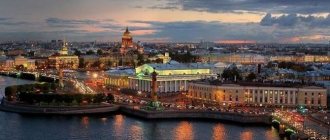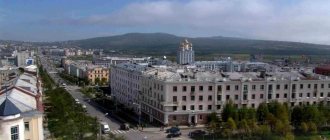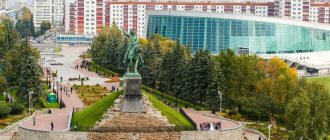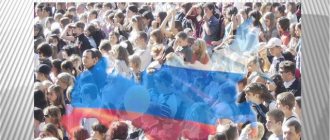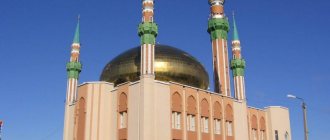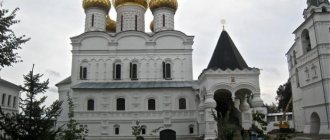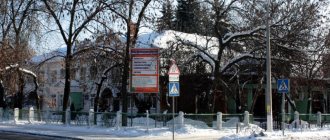Demography
| Fertility (number of births per 1000 population) | ||||||||
| 1970[15] | 1975[15] | 1980[15] | 1985[15] | 1990[15] | 1995[15] | 1996[15] | 1997[15] | 1998[15] |
| 18,1 | ↗20,8 | ↗21,6 | ↗24,1 | ↘18,2 | ↘11,7 | ↘11,6 | ↘11,0 | ↗11,3 |
| 1999[15] | 2000[15] | 2001[15] | 2002[15] | 2003[16] | 2004[16] | 2005[16] | 2006[16] | 2007[17] |
| ↘11,0 | ↗11,3 | ↗11,4 | ↗12,6 | ↗13,5 | ↗13,8 | ↗14,0 | ↗14,8 | ↗16,1 |
| 2008[17] | 2009[17] | 2010[17] | 2011[18] | 2012[19] | 2013[20] | 2014[21] | ||
| ↗17,0 | ↗17,4 | ↘17,0 | ↘16,9 | ↗17,4 | ↗17,6 | ↘17,5 | ||
| Mortality rate (number of deaths per 1000 population) | ||||||||
| 1970[22] | 1975[22] | 1980[22] | 1985[22] | 1990[22] | 1995[22] | 1996[22] | 1997[22] | 1998[22] |
| 7,7 | ↗8,9 | ↗9,5 | ↗9,6 | ↘9,1 | ↗12,0 | ↘11,8 | ↘11,6 | ↘11,0 |
| 1999[22] | 2000[22] | 2001[22] | 2002[22] | 2003[23] | 2004[23] | 2005[23] | 2006[23] | 2007[24] |
| ↗12,6 | ↗12,7 | ↗13,5 | ↗14,1 | ↗15,4 | ↘15,3 | ↗15,7 | ↘14,5 | ↘13,3 |
| 2008[24] | 2009[24] | 2010[24] | 2011[25] | 2012[26] | 2013[27] | 2014[28] | ||
| ↗13,5 | ↘13,0 | ↘12,7 | ↘12,6 | ↘12,4 | ↘11,8 | ↘11,5 | ||
| Natural population growth (per 1000 population, sign (-) means natural population decline) | ||||||||
| 1970[29] | 1975[29] | 1980[29] | 1985[29] | 1990[29] | 1995[29] | 1996[29] | 1997[29] | 1998[29] |
| 10,4 | ↗11,9 | ↗12,1 | ↗14,5 | ↘9,1 | ↘-0,3 | ↗-0,2 | ↘-0,6 | ↗0,3 |
| 1999[29] | 2000[29] | 2001[29] | 2002[29] | 2003[30] | 2004[30] | 2005[30] | 2006[30] | 2007[31] |
| ↘-1,6 | ↗-1,4 | ↘-2,1 | ↗-1,5 | ↘-1,9 | ↗-1,5 | ↘-1,7 | ↗0,3 | ↗2,8 |
| 2008[31] | 2009[31] | 2010[31] | 2011[32] | 2012[33] | 2013[34] | 2014[35] | ||
| ↗3,5 | ↗4,4 | ↘4,3 | ↗4,3 | ↗5,0 | ↗5,8 | ↗6,0 | ||
| Life expectancy at birth (number of years) | ||||||||
| 1990[36] | 1991[36] | 1992[36] | 1993[36] | 1994[36] | 1995[36] | 1996[36] | 1997[36] | 1998[36] |
| 67,0 | ↘66,8 | ↘65,7 | ↘62,9 | ↘61,4 | ↗62,9 | ↗63,3 | ↗64,0 | ↗64,9 |
| 1999[36] | 2000[36] | 2001[36] | 2002[36] | 2003[36] | 2004[36] | 2005[36] | 2006[36] | 2007[36] |
| ↘62,7 | ↗62,7 | ↘62,0 | ↘61,3 | ↘60,9 | ↗61,1 | ↘60,9 | ↗62,4 | ↗64,2 |
| 2008[36] | 2009[36] | 2010[36] | 2011[37] | 2012[37] | 2013[37] | |||
| ↗64,4 | ↗65,3 | ↗66,1 | ↗66,1 | ↗66,8 | ↗67,7 | |||
National composition
| 1959[38] people | % | 1989[39] people | % | 2002[40] people | % from everything | % of those who indicated nationality | 2010[41][42] people | % from everything | % of those who indicated nationality | |
| Total | 673326 | 100,00 % | 1038252 | 100,00 % | 981238 | 100,00 % | 972021 | 100,00 % | ||
| Russians | 502568 | 74,64 % | 726165 | 69,94 % | 665512 | 67,82 % | 67,88 % | 630783 | 64,89 % | 66,05 % |
| Buryats | 135798 | 20,17 % | 249525 | 24,03 % | 272910 | 27,81 % | 27,84 % | 286839 | 29,51 % | 30,04 % |
| Tatars | 8058 | 1,20 % | 10496 | 1,01 % | 8189 | 0,83 % | 0,84 % | 6813 | 0,70 % | 0,71 % |
| Ukrainians | 10183 | 1,51 % | 22868 | 2,20 % | 9585 | 0,98 % | 0,98 % | 5654 | 0,58 % | 0,59 % |
| Soyots | 2739 | 0,28 % | 0,28 % | 3579 | 0,37 % | 0,37 % | ||||
| Evenks | 1335 | 0,20 % | 1679 | 0,16 % | 2334 | 0,24 % | 0,24 % | 2974 | 0,31 % | 0,31 % |
| Armenians | 148 | 0,02 % | 2269 | 0,22 % | 2165 | 0,22 % | 0,22 % | 2179 | 0,22 % | 0,23 % |
| Azerbaijanis | 134 | 0,02 % | 1679 | 0,16 % | 1674 | 0,17 % | 0,17 % | 1608 | 0,17 % | 0,17 % |
| Belarusians | 1607 | 0,24 % | 5338 | 0,51 % | 2276 | 0,23 % | 0,23 % | 1280 | 0,13 % | 0,13 % |
| Uzbeks | 92 | 0,01 % | 994 | 0,10 % | 596 | 0,06 % | 0,06 % | 1261 | 0,13 % | 0,13 % |
| Kyrgyz | 208 | 0,02 % | 507 | 0,05 % | 0,05 % | 1133 | 0,12 % | 0,12 % | ||
| Germans | 2032 | 0,30 % | 2126 | 0,20 % | 1548 | 0,16 % | 0,16 % | 1016 | 0,10 % | 0,11 % |
| Chinese | 1077 | 0,16 % | 191 | 0,02 % | 635 | 0,06 % | 0,06 % | 1014 | 0,10 % | 0,11 % |
| Tuvans | 476 | 0,05 % | 405 | 0,04 % | 0,04 % | 909 | 0,09 % | 0,10 % | ||
| Chuvash | 1206 | 0,18 % | 1307 | 0,13 % | 864 | 0,09 % | 0,09 % | 744 | 0,08 % | 0,08 % |
| Kazakhs | 457 | 0,07 % | 1270 | 0,12 % | 711 | 0,07 % | 0,07 % | 685 | 0,07 % | 0,07 % |
| Bashkirs | 200 | 0,03 % | 920 | 0,09 % | 539 | 0,05 % | 0,05 % | 564 | 0,06 % | 0,06 % |
| Koreans | 145 | 0,02 % | 339 | 0,03 % | 596 | 0,06 % | 0,06 % | 486 | 0,05 % | 0,05 % |
| Mordva | 1614 | 0,24 % | 1294 | 0,12 % | 685 | 0,07 % | 0,07 % | 435 | 0,04 % | 0,05 % |
| Mongols | 52 | 0,01 % | 322 | 0,03 % | 0,03 % | 395 | 0,04 % | 0,04 % | ||
| Jews | 2691 | 0,40 % | 1181 | 0,11 % | 553 | 0,06 % | 0,06 % | 336 | 0,03 % | 0,04 % |
| Moldovans | 323 | 0,05 % | 912 | 0,09 % | 431 | 0,04 % | 0,04 % | 307 | 0,03 % | 0,03 % |
| Tajiks | 210 | 0,02 % | 251 | 0,03 % | 0,03 % | 295 | 0,03 % | 0,03 % | ||
| Georgians | 92 | 0,01 % | 612 | 0,06 % | 398 | 0,04 % | 0,04 % | 279 | 0,03 % | 0,03 % |
| Yakuts | 108 | 0,02 % | 705 | 0,07 % | 283 | 0,03 % | 0,03 % | 272 | 0,03 % | 0,03 % |
| Udmurts | 338 | 0,05 % | 524 | 0,05 % | 339 | 0,03 % | 0,03 % | 250 | 0,03 % | 0,03 % |
| Mari | 91 | 0,01 % | 388 | 0,04 % | 390 | 0,04 % | 0,04 % | 214 | 0,02 % | 0,02 % |
| other | 3020 | 0,45 % | 4508 | 0,43 % | 2931 | 0,30 % | 0,30 % | 2698 | 0,28 % | 0,28 % |
| indicated nationality | 673317 | 100,00 % | 1038236 | 100,00 % | 980368 | 99,91 % | 100,00 % | 955002 | 98,25 % | 100,00 % |
| did not indicate nationality | 9 | 0,00 % | 16 | 0,00 % | 870 | 0,09 % | 17019 | 1,75 % |
Dynamics
Change in the share of the most numerous nationalities of Buryatia in 1926-2010[43]:
| people/year | 1926 | 1939 | 1959 | 1970 | 1979 | 1989 | 2002 | 2010 |
| Russians | 52,9 % | 72,0 % | 74,6 % | 76,5 % | 72,0 % | 69,9 % | 67,8 % | 66,1 % |
| Buryats | 43,9 % | 21,3 % | 20,2 % | 19,0 % | 23,0 % | 24,0 % | 27,8 % | 30,0 % |
| Ukrainians | 0,4 % | 2,5 % | 1,5 % | 1,3 % | 1,7 % | 2,2 % | 0,98 % | 0,6 % |
| Tatars | 0,6 % | 0,7 % | 1,2 % | 1,2 % | 1,1 % | 1,0 % | 0,83 % | 0,7 % |
Notes
- ↑ 12
The edges Altai • Transbaikal • Kamchatka • Krasnodar • Krasnoyarsk • Perm • Primorsky • Stavropol • Khabarovsk Regions Amur • Arkhangelsk • Astrakhan • Belgorod • Bryansk • Vladimir • Volgograd • Vologda • Voronezh • Ivanovo • Irkutsk • Kaliningrad • Kaluga • Kemerovo • Kirov • Kostroma • Kurgan • Kursk • Leningrad • Lipetsk • Magadan • Moscow • Murmansk • Nizhny Novgorod • Novgorod • Novosibirsk • Omsk • Orenburg • Oryol • Penza • Pskov • Rostov • Ryazan • Samara • Saratov • Sakhalin • Sverdlovsk • Smolensk • Tambov • Tver • Tomsk • Tula • Tyumen • Ulyanovsk • Chelyabinsk • Yaroslavl Federal cities Moscow • St. Petersburg • Sevastopol[1] Autonomous region Jewish Autonomous okrugs Nenets[2] • Khanty-Mansiysk - Yugra[3] • Chukotka • Yamalo-Nenets[3] - ↑ 12
The Republic of Crimea and Sevastopol are located on territory whose annexation to Russia has not received international recognition. - Part of the Arkhangelsk region
- ↑ 12
Part of the Tyumen region
Cities - Babushkin
- Gusinoozersk
- Zakamensk
- Kyakhta
- Severobaykalsk
Urban districts - Severobaykalsk
- Ulan-Ude
Districts - Barguzinsky
- Bauntovsky
- Bichursky
- Dzhidinsky
- Eravninsky
- Zaigraevsky
- Zakamensky
- Ivolginsky
- Kabansky
- Kizhinginsky
- Kurumkansky
- Kyakhtinsky
- Muisky
- Mukhorshibirsky
- Okinsky
- Pribaikalsky
- Severo-Baikalsky
- Selenginsky
- Tarbagataisky
- Tunkinsky
- Khorinsky
Articles - Geography
- Coat of arms
- Hymn
- Story
- Population
- Administrative division
- Flag
- ↑ 12
Government
State power in the republic is exercised by the Head of Buryatia, the Government, the courts, as well as the People's Khural of the Republic of Buryatia, which exercises legislative power, being a representative body of people's power.
The People's Khural of the Republic of Buryatia consists of 66 deputies who are elected using a mixed system, including both single-mandate constituencies and party lists.
In its modern form, the People's Khural has existed since 1994, when it was created on the basis of the executive committee of the Buryat Autonomous Soviet Socialist Republic. During the twenty-three years of its existence, the Khural was convened five times. The competence of this government body includes the preparation and discussion, as well as the initiation of legislative acts affecting all areas of public life, such as safety, health and the economy.
An excerpt characterizing the population of Buryatia
One evening, when the old countess, sighing and groaning, in a nightcap and blouse, without false curls, and with one poor tuft of hair protruding from under a white calico cap, was making prostrations for evening prayer on the rug, her door creaked, and Natasha ran in, shoes on her bare feet, also in a blouse and curlers. The Countess looked around and frowned. She finished reading her last prayer: “Will this coffin be my bed?” Her prayerful mood was destroyed. Natasha, red and animated, seeing her mother at prayer, suddenly stopped in her run, sat down and involuntarily stuck out her tongue, threatening herself. Noticing that her mother continued her prayer, she ran on tiptoe to the bed, quickly sliding one small foot over the other, kicked off her shoes and jumped onto the bed for which the countess was afraid that it might not be her coffin. This bed was tall, made of feather beds, with five ever-decreasing pillows. Natasha jumped up, sank into the feather bed, rolled over to the wall and began fiddling around under the blanket, laying down, bending her knees to her chin, kicking her legs and laughing barely audibly, now covering her head, now looking at her mother. The Countess finished her prayer and approached the bed with a stern face; but, seeing that Natasha had her head covered, she smiled her kind, weak smile. “Well, well, well,” said the mother. - Mom, we can talk, right? - Natasha said. - Well, once in a while, well, it will happen again. “And she grabbed her mother’s neck and kissed her under the chin. In her treatment of her mother, Natasha showed an outward rudeness of manner, but she was so sensitive and dexterous that no matter how she clasped her mother in her arms, she always knew how to do it in such a way that her mother would not feel pain, discomfort, or embarrassment. - Well, what are we talking about today? - said the mother, settling down on the pillows and waiting until Natasha, having also rolled over herself a couple of times, lay down next to her under the same blanket, holding out her arms and taking on a serious expression. These nightly visits to Natasha, which took place before the count returned from the club, were one of the favorite pleasures of mother and daughter. - What are we talking about today? And I need to tell you... Natasha covered her mother’s mouth with her hand. “About Boris... I know,” she said seriously, “that’s why I came.” Don't tell me, I know. No, tell me! – She let go of her hand. - Tell me, mom. Is he nice? – Natasha, you are 16 years old, I was married at your age. You say that Borya is nice. He is very sweet and I love him like a son, but what do you want?... What do you think? You have completely turned his head, I can see that... Saying this, the countess looked back at her daughter. Natasha lay straight and motionless looking ahead at one of the mahogany sphinxes carved on the corners of the bed, so that the countess only saw her daughter’s face in profile. This face struck the countess with its peculiarity of serious and concentrated expression. Natasha listened and thought. - Well, what then? - she said. – You completely turned his head, why? What do you want from him? You know you can't marry him. - From what? – Natasha said without changing her position. “Because he’s young, because he’s poor, because he’s related... because you don’t love him yourself.” - Why do you know? - I know. This is not good, my friend. “And if I want...” said Natasha. “Stop talking nonsense,” said the Countess. - And if I want... - Natasha, I’m serious... Natasha didn’t let her finish, she pulled the countess’s big hand towards her and kissed it on top, then on the palm, then turned it again and began kissing her on the bone of the upper joint of the finger, then on the gap, then again into the bone, whispering: “January, February, March, April, May.” - Speak, mother, why are you silent? “Speak,” she said, looking back at the mother, who was looking at her daughter with a tender gaze and, because of this contemplation, seemed to have forgotten everything she wanted to say. - This is no good, my soul. Not everyone will understand your childhood connection, and seeing him so close to you can harm you in the eyes of other young people who come to us, and, most importantly, it tortures him in vain. He may have found a match for himself, a rich one; and now he's going crazy. - Does it work? – Natasha repeated. – I’ll tell you about myself. I had one cousin... - I know - Kirilla Matveich, but he’s an old man? – It wasn’t always an old man. But here’s what, Natasha, I’ll talk to Borya. He doesn’t need to travel so often... - Why shouldn’t he, if he wants to? - Because I know that this will not end in anything. - Why do you know? No, mom, you don't tell him. What nonsense! - Natasha said in the tone of a person from whom they want to take away his property. “Well, I won’t get married, so let him go, if he’s having fun and I’m having fun.” – Natasha smiled and looked at her mother. “Not married, but just like that,” she repeated. - How is this, my friend? - Yes, yes. Well, it’s very necessary that I don’t get married, but... so. “Yes, yes,” the countess repeated and, shaking her whole body, laughed with a kind, unexpected old woman’s laugh. “Stop laughing, stop,” Natasha shouted, “you’re shaking the whole bed.” You look terribly like me, the same laugher... Wait... - She grabbed both hands of the countess, kissed the little finger bone on one - June, and continued to kiss July, August on the other hand. - Mom, is he very much in love? How about your eyes? Were you so in love? And very sweet, very, very sweet! But it’s not quite to my taste - it’s narrow, like a table clock... Don’t you understand?... Narrow, you know, gray, light... - Why are you lying! - said the countess. Natasha continued: “Don’t you understand?” Nikolenka would understand... The earless one is blue, dark blue with red, and he is quadrangular. “You flirt with him too,” said the countess, laughing. - No, he is a Freemason, I found out. He’s nice, dark blue and red, how can I explain it to you... “Countess,” the count’s voice was heard from behind the door. -Are you awake? – Natasha jumped up barefoot, grabbed her shoes and ran into her room. She couldn't sleep for a long time. She kept thinking that no one could understand everything that she understood and that was in her. "Sonya?" she thought, looking at the sleeping, curled up cat with her huge braid. “No, where should she go!” She is virtuous. She fell in love with Nikolenka and doesn’t want to know anything else. Mom doesn’t understand either. It’s amazing how smart I am and how... she’s sweet,” she continued, speaking to herself in the third person and imagining that some very smart, smartest and nicest man was talking about her... “Everything, everything is in her.” , - continued this man, - she is unusually smart, sweet and then good, unusually good, dexterous, swims, rides excellently, and has a voice! One might say, an amazing voice!” She sang her favorite musical phrase from the Cherubini Opera, threw herself on the bed, laughed with the joyful thought that she was about to fall asleep, shouted to Dunyasha to put out the candle, and before Dunyasha had time to leave the room, she had already passed into another, even happier world of dreams , where everything was as easy and wonderful as in reality, but it was only even better, because it was different. The next day, the countess, inviting Boris to her place, talked with him, and from that day he stopped visiting the Rostovs. On December 31, on New Year's Eve 1810, le reveillon [night supper], there was a ball at Catherine's nobleman's house. The diplomatic corps and the sovereign were supposed to be at the ball. On the Promenade des Anglais, the famous house of a nobleman glowed with countless lights. At the illuminated entrance with a red cloth stood the police, and not only gendarmes, but the police chief at the entrance and dozens of police officers. The carriages drove off, and new ones drove up with red footmen and footmen with feathered hats. Men in uniforms, stars and ribbons came out of the carriages; ladies in satin and ermine carefully stepped down the noisily laid down steps, and hurriedly and silently walked along the cloth of the entrance. Almost every time a new carriage arrived, there was a murmur in the crowd and hats were taken off. “Sovereign?... No, minister... prince... envoy... Don’t you see the feathers?...” said from the crowd. One of the crowd, better dressed than the others, seemed to know everyone, and called by name the most noble nobles of that time. Already one third of the guests had arrived at this ball, and the Rostovs, who were supposed to be at this ball, were still hastily preparing to dress. There was a lot of talk and preparation for this ball in the Rostov family, a lot of fears that the invitation would not be received, the dress would not be ready, and everything would not work out as needed. Along with the Rostovs, Marya Ignatievna Peronskaya, a friend and relative of the countess, a thin and yellow maid of honor of the old court, leading the provincial Rostovs in the highest St. Petersburg society, went to the ball. At 10 o'clock in the evening the Rostovs were supposed to pick up the maid of honor at the Tauride Garden; and yet it was already five minutes to ten, and the young ladies were not yet dressed. Natasha was going to the first big ball in her life. That day she got up at 8 o'clock in the morning and was in feverish anxiety and activity all day. All her strength, from the very morning, was aimed at ensuring that they all: she, mother, Sonya were dressed in the best possible way. Sonya and the Countess trusted her completely. The countess was supposed to be wearing a masaka velvet dress, the two of them were wearing white smoky dresses on pink, silk covers with roses in the bodice. The hair had to be combed a la grecque [in Greek]. Everything essential had already been done: the legs, arms, neck, ears were already especially carefully, like a ballroom, washed, perfumed and powdered; they were already wearing silk, fishnet stockings and white satin shoes with bows; the hairstyles were almost finished. Sonya finished dressing, and so did the Countess; but Natasha, who was working for everyone, fell behind. She was still sitting in front of the mirror with a peignoir draped over her slender shoulders. Sonya, already dressed, stood in the middle of the room and, pressing painfully with her small finger, pinned the last ribbon that squealed under the pin. “Not like that, not like that, Sonya,” said Natasha, turning her head away from her hair and grabbing the hair with her hands, which the maid who was holding it did not have time to let go. - Not like that, come here. – Sonya sat down. Natasha cut the tape differently. “Excuse me, young lady, you can’t do this,” said the maid holding Natasha’s hair. - Oh, my God, well, later! That's it, Sonya. -Are you coming soon? – the countess’s voice was heard, “it’s already ten.” - Now. -Are you ready, mom? - Just pin the current. “Don’t do it without me,” Natasha shouted, “you won’t be able to!” - Yes, ten. It was decided to be at the ball at half past ten, and Natasha still had to get dressed and stop by the Tauride Garden. Having finished her hair, Natasha, in a short skirt, from which her ballroom shoes were visible, and in her mother’s blouse, ran up to Sonya, examined her and then ran to her mother. Turning her head, she pinned the current, and, barely having time to kiss her gray hair, again ran to the girls who were hemming her skirt. The issue was Natasha's skirt, which was too long; Two girls were hemming it, hastily biting the threads. The third, with pins in her lips and teeth, ran from the Countess to Sonya; the fourth held her entire smoky dress on her raised hand. - Mavrusha, rather, my dear! - Give me a thimble from there, young lady. - Soon, finally? - said the count, entering from behind the door. - Here's some perfume for you. Peronskaya is already tired of waiting. “It’s ready, young lady,” said the maid, lifting the hemmed smoky dress with two fingers and blowing and shaking something, expressing with this gesture an awareness of the airiness and purity of what she was holding. Natasha began to put on her dress. “Now, now, don’t go, dad,” she shouted to her father, who opened the door, still from under the haze of her skirt, which covered her entire face. Sonya slammed the door. A minute later the count was let in. He was in a blue tailcoat, stockings and shoes, perfumed and oiled. - Oh, dad, you are so good, dear! – Natasha said, standing in the middle of the room and straightening the folds of the haze. “Excuse me, young lady, allow me,” said the girl, standing on her knees, pulling off her dress and turning the pins from one side of her mouth to the other with her tongue. - Your will! - Sonya cried out with despair in her voice, looking at Natasha’s dress, - your will, it’s long again! Natasha moved away to look around in the dressing table. The dress was long. “By God, madam, nothing is long,” said Mavrusha, crawling on the floor behind the young lady. “Well, it’s long, so we’ll sweep it up, we’ll sweep it up in a minute,” said the determined Dunyasha, taking out a needle from the handkerchief on her chest and getting back to work on the floor. At this time, the countess entered shyly, with quiet steps, in her current and velvet dress. - Ooh! my beauty! - the count shouted, - better than all of you!... - He wanted to hug her, but she pulled away, blushing, so as not to crumple. “Mom, more on the side of the current,” Natasha said. “I’ll cut it,” and she rushed forward, and the girls who were hemming, did not have time to rush after her, tore off a piece of smoke. - My God! What is this? I don’t blame God... “I’m sweeping it all away, it won’t be visible,” Dunyasha said. - Beauty, it’s mine! - said the nanny who came in from behind the door. - And Sonyushka, what a beauty!... At a quarter past ten we finally got into the carriages and drove off. But we still had to stop by the Tauride Garden. Peronskaya was already ready. Despite her old age and ugliness, she did exactly the same thing as the Rostovs, although not with such haste (this was a common thing for her), but her old, ugly body was also perfumed, washed, powdered, and the ears were also carefully washed , and even, and just like the Rostovs, the old maid enthusiastically admired her mistress’s outfit when she came out into the living room in a yellow dress with a code. Peronskaya praised the Rostovs' toilets. The Rostovs praised her taste and dress, and, taking care of her hair and dresses, at eleven o'clock they settled into their carriages and drove off. Since the morning of that day, Natasha had not had a minute of freedom, and not once had time to think about what lay ahead of her. In the damp, cold air, in the cramped and incomplete darkness of the swaying carriage, for the first time she vividly imagined what awaited her there, at the ball, in the illuminated halls - music, flowers, dancing, the sovereign, all the brilliant youth of St. Petersburg. What awaited her was so beautiful that she did not even believe that it would happen: it was so incongruous with the impression of cold, cramped space and darkness of the carriage. She understood everything that awaited her only when, having walked along the red cloth of the entrance, she entered the entryway, took off her fur coat and walked next to Sonya in front of her mother between the flowers along the illuminated stairs. Only then did she remember how she had to behave at the ball and tried to adopt the majestic manner that she considered necessary for a girl at the ball. But fortunately for her, she felt that her eyes were running wild: she saw nothing clearly, her pulse beat a hundred times a minute, and the blood began to pound at her heart. She could not accept the manner that would make her funny, and she walked, frozen with excitement and trying with all her might to hide it. And this was the very manner that suited her most of all. In front and behind them, talking just as quietly and also in ball gowns, guests entered. The mirrors along the stairs reflected ladies in white, blue, pink dresses, with diamonds and pearls on their open arms and necks.
Culture of the region
Despite the fact that, in accordance with the plan for the creation of national autonomies, which was implemented during the first years of the existence of the USSR and the carving out of territories for the creation of state entities, the overwhelming majority of the population of the republic are Russians.
In Buryatia, the population is represented by two large ethnic groups, the Buryats themselves, who have lived on these lands for many centuries, and the Russians, who began active colonization of Transbaikalia at the end of the 15th century.
The development of the south of Eastern Siberia by Russian pioneers began with the construction of the Udinsky fort, which for a century served as one of the important fortifications in this region. It was regularly rebuilt and modernized, as it was twice besieged by Mongol tribes controlled by neighboring China. However, for a century and a half, most of the buildings in it were wooden.


